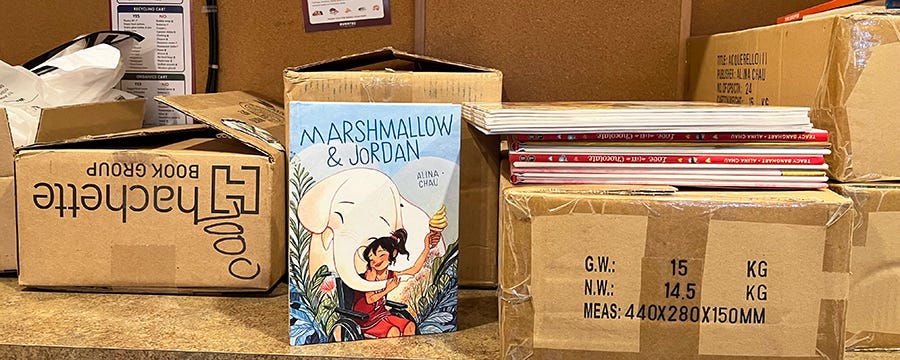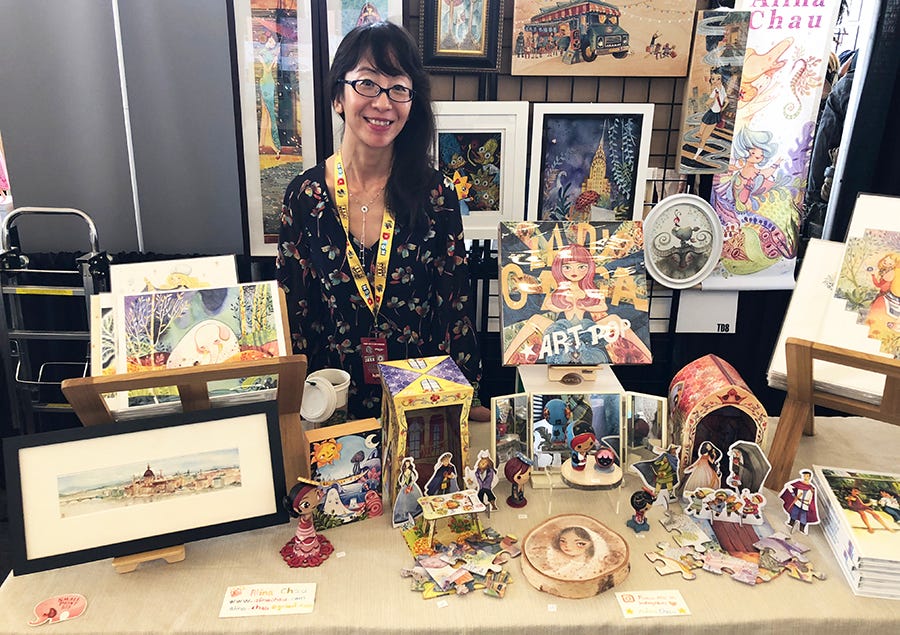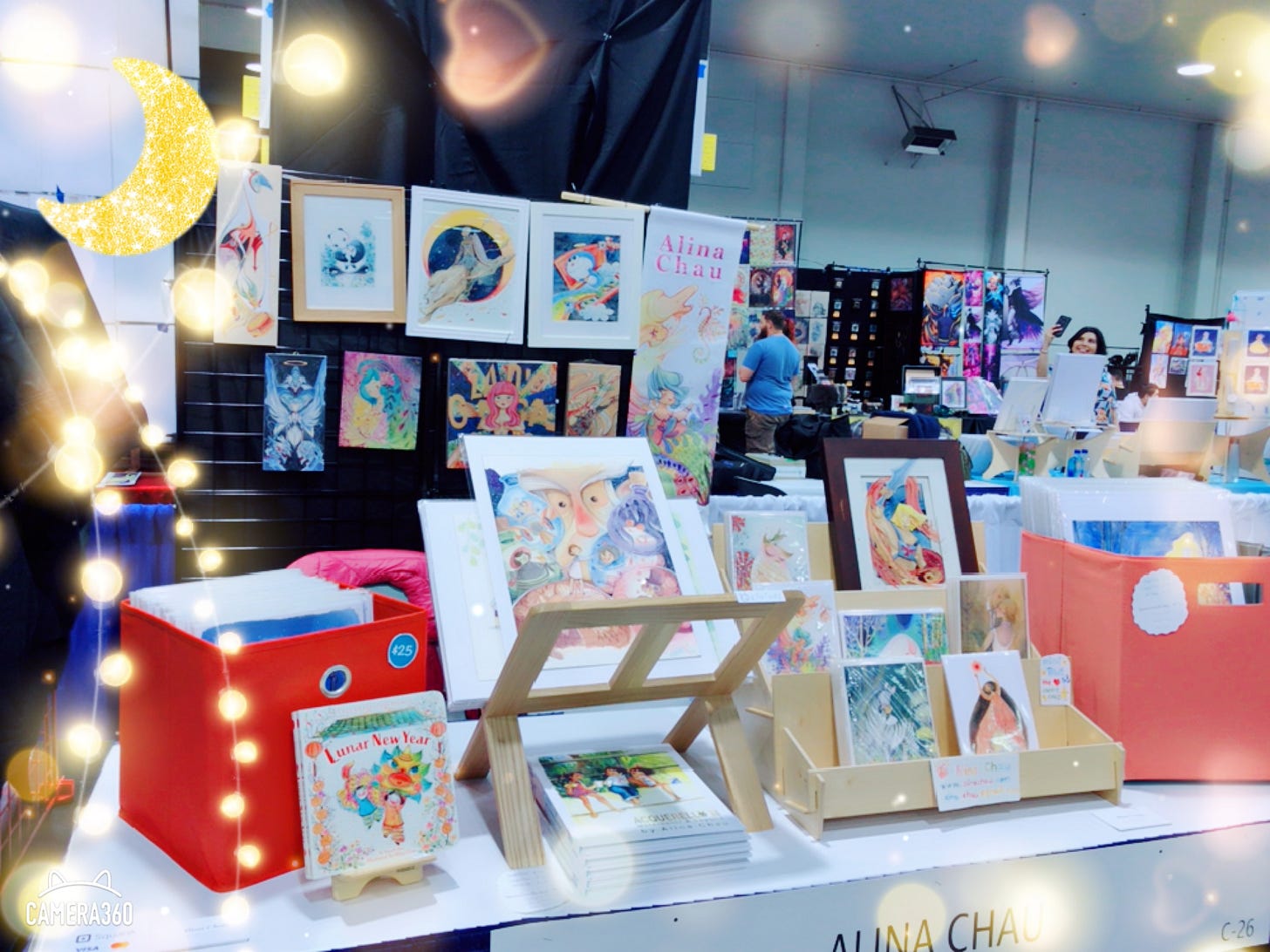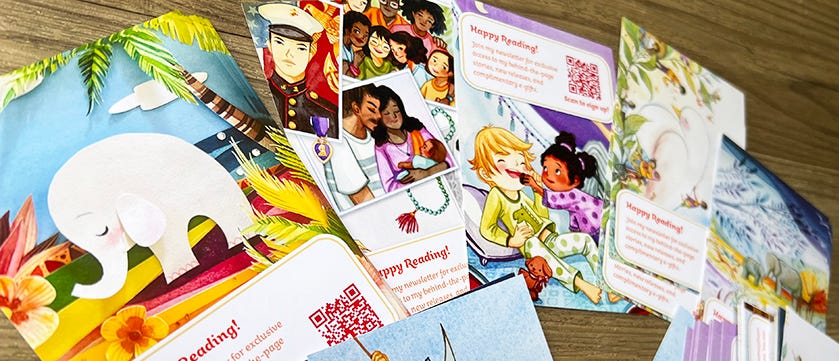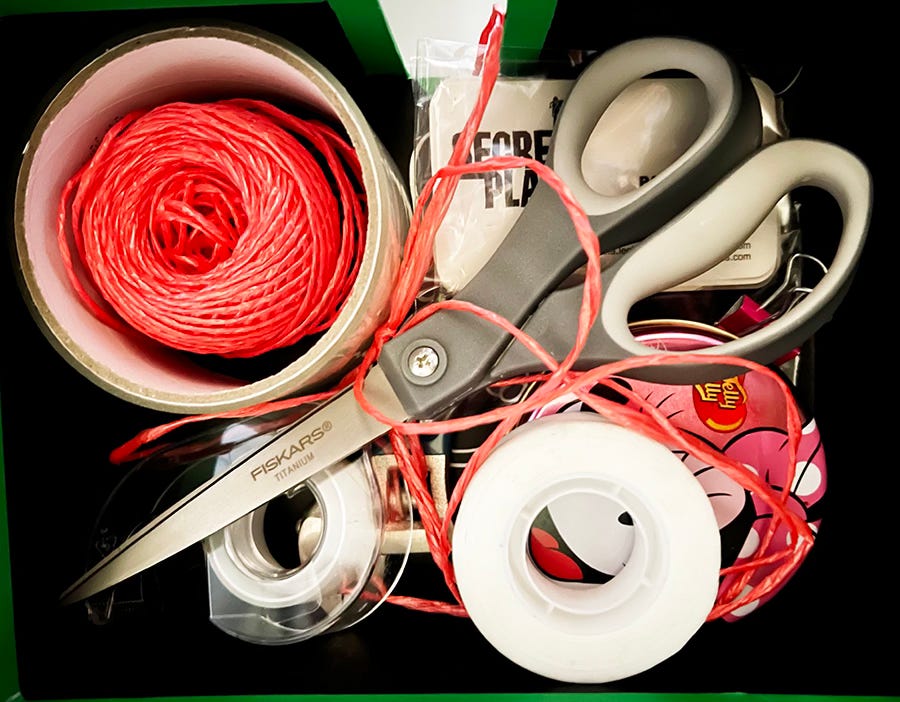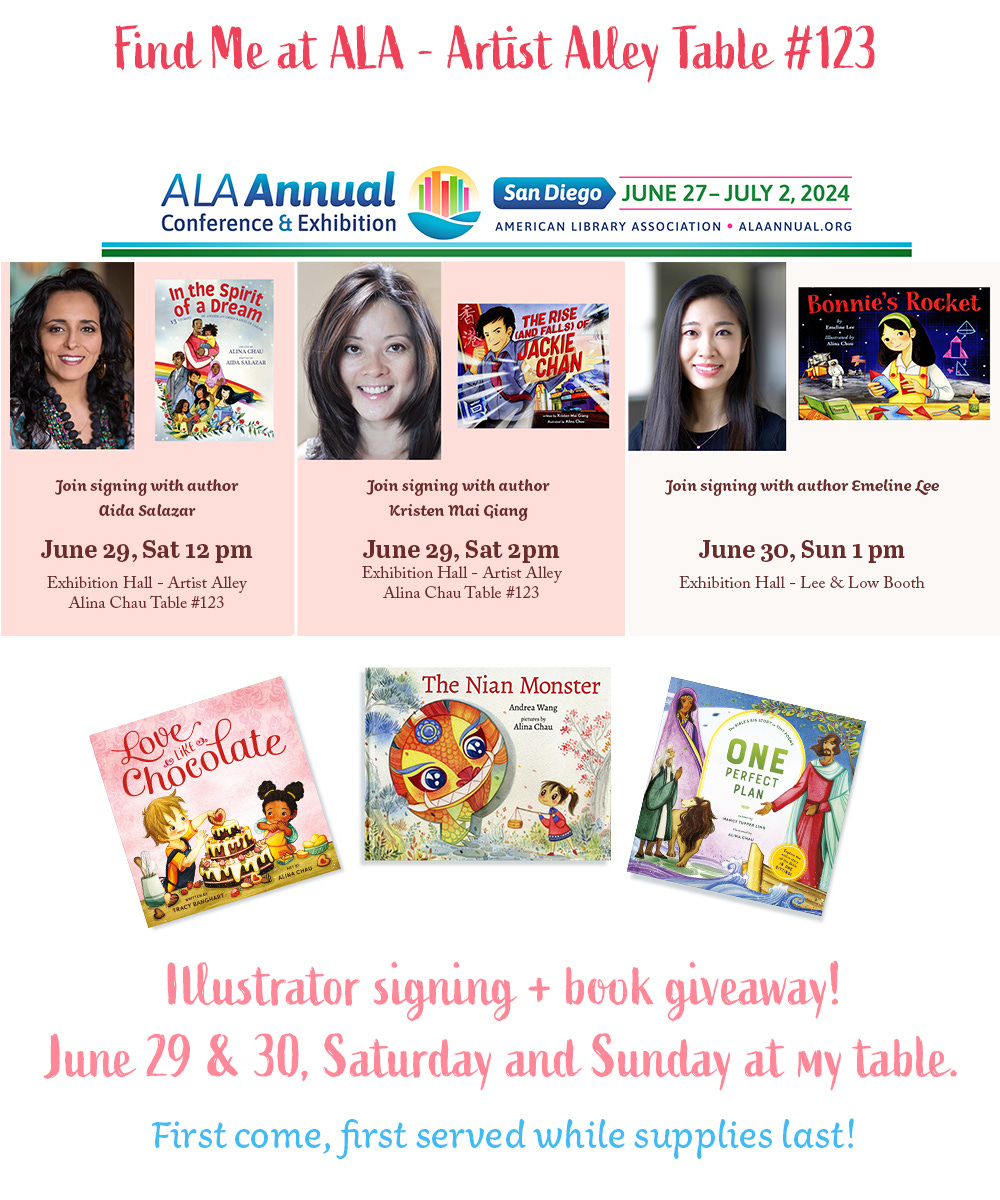I'm off to the American Library Association Conference and Exhibition (ALA) today. I wrote this post while getting ready for the conference. I've been to a few ALA events, but it's been ages since my last one. I love ALA. It's a great way to connect with amazing people in the publishing industry. The day-to-day life of an author/illustrator can be pretty solitary. We work alone at home, with the occasional Zoom or phone call with the publishing teams. Often, you don't even meet the people you work with in person. It's not uncommon, many folks go years without meeting their agent until some big book event.
The American Library Association Conference and Exhibition (ALA) is an annual event where authors and illustrators are invited by their publishers to promote their books through signings or talks. However, there is also an Artist Alley area at ALA where creators can apply to exhibit. ALA selects 30 applicants to exhibit at Artist Alley for free, which is fantastic! I hadn't planned to table at a convention this year, but when I found out that ALA is in SoCal this summer, I couldn't resist joining the fun. I applied for a table there earlier this year, and I was thrilled when I got in. As I prepare for the conference, I thought it would be fun to share tips on how to set up a successful pop-up shop at a convention or fair!
Research into the theme of the event!
Each convention or fair has its vibe or "personality." Even within an art-themed event, some are more popular with pop culture fans, while others may cater to more indie art or hand-made crafts. You want to sign up for the "right" kind of convention for your crafts.
I learned this lesson the hard way when I first started going to conventions. One time, I applied to a "baby" convention without researching into it. I just thought it was a place where people sell cute stuff for babies like clothes, nursery art, and toys. I figure my art would be perfect for baby rooms. It turned out the convention had nothing to do with cute baby merch. Most of the exhibitors were banks, realtors, and family planning services. My table was next to a family planning service that talked about circumcision and contraception all day. Most attendees didn't get what I was selling, it wasn't fun at all. I was totally at the wrong place. I not only didn't make any money, but the worst part was that after deducting the exhibition cost, I ended up in the negative!
Check out a con or fair before you decide to exhibit there. Do some online research or chat with friends who have been exhibitors at the con you're interested in. Get to know the event as much as possible before applying so you know what you're getting into.
Starting small!
Setting up a booth at a convention is a ton of work. There's a lot of prep leading up to the event, and during the event, you've got to figure out how to set up your table, show off your stuff, and find time to take a bathroom break or grab a bite to eat! It gets overwhelming very quickly. If you're an introvert like me, constantly talking to people can be very draining.
If you're new to the convention, it’s better to starting small. Big booths are cool, but they're more expensive and require more work. Consider sharing a table or the exhibition space with a friend. It can help cut costs and the stress of feeling like you need to fill the whole exhibition space alone. Also, friends can help and cover for each other, so everyone can take a break when things get too intense.
Less is more!
When you're getting ready for a convention, a common question is how much merch and how many of each item you should bring.
When it comes to making and selling merch, it's better to go for quality over quantity. You don't need a ton of different products to make good money. Instead, focus on creating a small collection of your best work that you're really proud of.
When you're working out how much it's going to cost to make your merch, don't forget to think about the shipping costs too. If you're getting your products made by a manufacturing service, find out what it's going to cost to ship them to you. And if you're selling at an event, you'll need to factor in the cost of getting your merch to the venue.
It's also worth thinking about where you're going to keep your products before and after the event. If you don't have space at home, you might need to pay for storage.
Expect the unexpected!
Always be ready for anything at the convention. Once, when moving boxes of prints from my car to my table at a con, my trolley's wheel broke, and boxes of art prints fell off the cart, spilling all over the sidewalk. It was a total disaster, but thankfully, many friendly exhibitors helped me carry my stuff to my table.
Make sure to bring some "emergency" tools, bandages, duct tape, plenty of water, snacks, and power bars. You just never know when unexpected things could happen, so make sure you are covered and prepared for the unexpected!
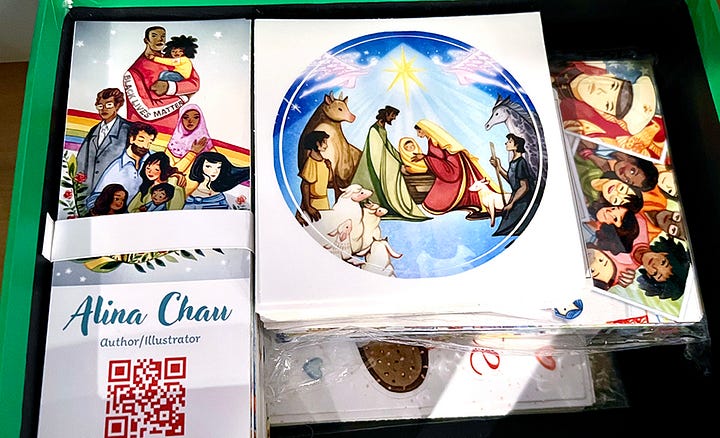
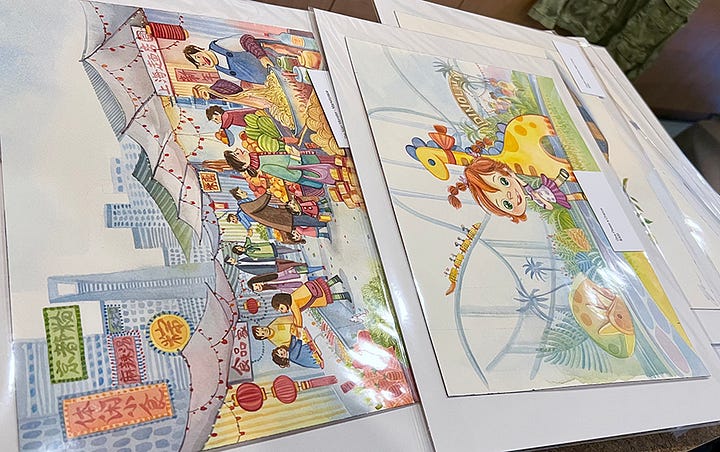
Set up a goal!
Everyone has their idea of a successful convention experience. Some people are about making money, while others want to network and find potential business partners or job opportunities. Knowing what you want from these events will help you prepare better for presenting your stuff and planning your marketing strategy. It will also help you figure out which conventions are the best fit for your goals.
When I first started my indie art business, I mostly attended smaller conventions. Back then, I just wanted to learn more about the indie art scene, connect with other indie artists, and get my name out there. As I grew, I started attending bigger comic cons to make more money and reach a wider audience.
Recently, I've been more focused on getting into children's book publishing. I've started looking into events attracting book people.
For example, ALA is more about connecting with the book communities and less about making money. It's a place where publishers and book creators connecting, promoting, and sharing their new books with librarians. They give out sample copies of their latest releases. The event is more about learning and making connections. So, I team up with authors and publishers to host book giveaways and signings. My main goal is to form meaningful connections with publishers, fellow book creator friends and librarians and less about making a profit.
Conventions like San Diego Comic-Con (SDCC) are more commercially oriented. If you're looking to turn a sizable profit, they are the conventions to look into.
Lastly, be kind to yourself. It might take a few tries to figure out your thing and how to make it work as an exhibitor. There'll be good and bad days at a con, but most importantly, have fun!
Even at my worst con experience - the "baby" con - I met a new friend, a talented baby photographer, Anna (Cute Moments Photography). She was also at the “wrong” convention. We laughed and commiserated over our bad con experiences, became friends, and later collaborated on many amazing photography projects for years to come. We are still friends till this day. So, even the worst con can turn into something great!
For live ALA updates, follow me on Instagram!




